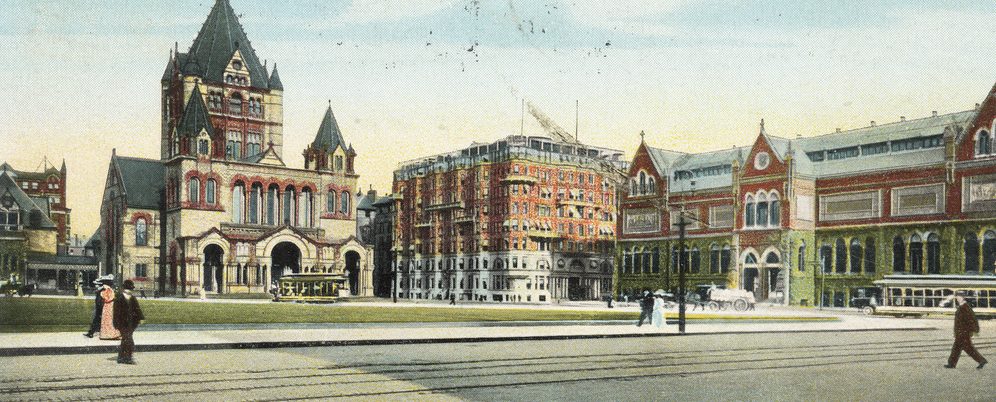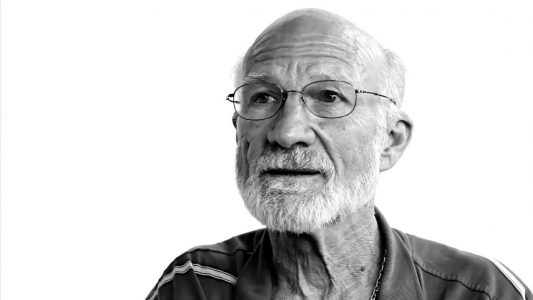
Welcome to our blog!
All entries reflect the views of their authors and not of the Luce Project on Religion and its Publics.
March 13, 2017: What We’re Reading
Theologians Were Arguing About the Benedict Option 35 Years Ago
By Guest Writer
Mere Orthodoxy
A very rich piece telling something of the deep theological background to Rod Dreher’s new “Benedict Option” book.
White House Echoes Tech: ‘Move Fast and Break Things’
By Charles Duhigg
The New York Times
Fascinating discussion of Trump and management strategies of “disruption,” the way that management strategies and political tactics occasionally intersect.
Against Everything: On Ivan Illich, Scourge of the Professions
By George Scialabba
The Baffler
That troublesome priest. Whether one calls this revolution or devolution, it clearly requires, he acknowledged, “a Copernican revolution in our perception of values.” …more
March 7, 2017: What We’re Reading
In Defense of Cultural Criticism in Trump’s America
By Josephine Livingstone
New Republic
“Every piece of cultural criticism is manufactured by human community and then offered back to that community as a gesture of thanks. “
March 1, 2017: What We’re Reading
The Islamic World did liberalize. Then came the first world war.
“Now, amid the beastliness of Isis and its fellow travellers, and the tendency of a growing number of westerners to demonise not Islamism or the terrorists but Islam tout court, it seems vital to recall that hopeful century when the lands of Islam engaged lustily with modernity in the hope that something of it can be recaptured — as, indeed, it briefly looked as though it might during the Arab Spring. The alternative is to perpetuate the self-fulfilling consensus around which the Isis ideologues and our own populists unite: a story of inevitable conflict and alienation based on a historical fallacy.”
A scientist’s new theory: Religion was key to human’s evolution
The Death of Expertise
“Nichols is a forceful and sometimes mordant commentator, with an eye for the apt analogy, as when he compares the current state of American public life to “a hockey game with no referees and a standing invitation for spectators to rush onto the ice.”
Return of the Prophet: Baldwin in the 21st Century
“[Baldwin is] a kind of Democratic saint, if you define a saint as a sinner who looks at the world through the lens of the heart.”
People have talked about Baldwin as a “prophet”, but that term is a stale cliché right now in our culture, with all distinctiveness sanded away. Maybe “saint” gets at something deeper in the situation here. This is interesting both about the category of “saint,” and about the figure of Baldwin, who never shied away from thinking about religion—and in a sense, as our Luce Senior Seminar colleague Vincent Lloyd has made clear, was never not a “public theologian.”
What We’re Reading: February 28, 2017
Theo-Politics in Flux: The Alt-Right on God, Christendom, and the Nation
By Mara Willard
Contending Modernities
While Hannah Arendt has had several revivals over the past few decades—for her insights on civil society, on the “banality of evil,” and on her conception of “the social” in the age of social media, one part of her work has so far not seemed immediately relevant, namely, her early work on totalitarianism. But Mara Willard makes the case in this essay that Arendt’s book The Origins of Totalitarianism is the one we need to read now, to understand currents in American politics and religious life.
Defend the Vital Center
February 10 • Philip Gorski
Writing shortly after the close of World War II, Harvard historian Arthur Schlesinger Jr. spoke of the urgent need to defend the “vital center” of the American polity against the “centrifugal forces” that were tearing it apart. By “vital center,” he meant a broad alliance between “the non-Fascist Right” and “the non-Communist Left” based on a shared belief in American democracy. Drawn together by the challenges of wartime mobilization, Schlesinger’s America held firm. Will ours?
Patience, Impatience, and Political Life Today
January 12, 2017 • By Paul Dafydd Jones
To say that 2016 was a politically tumultuous year is, at this point, to state the blindingly obvious. Sooner or later, my home country (the United Kingdom) will abandon the European Union, a multistate organization that helped maintain peace in a continent that has made a habit of war. Meanwhile, the country in which I live (the United States) awaits a president who has scorned the scientific consensus on climate change, stoked hostility towards immigrant communities, and promises – with seemingly little awareness of the history of the phrase – to put “America First.” The broader international situation also disquiets. The promise of the Arab Spring recedes, along with hopes for a mitigation of the Israel-Palestine conflict; Russian and China look to expand their “spheres of influence”; continued turmoil throughout South America seems likely. More could be said, but the point is obvious. If you think 2016 was bad, hold tight; 2017 could be much worse.
